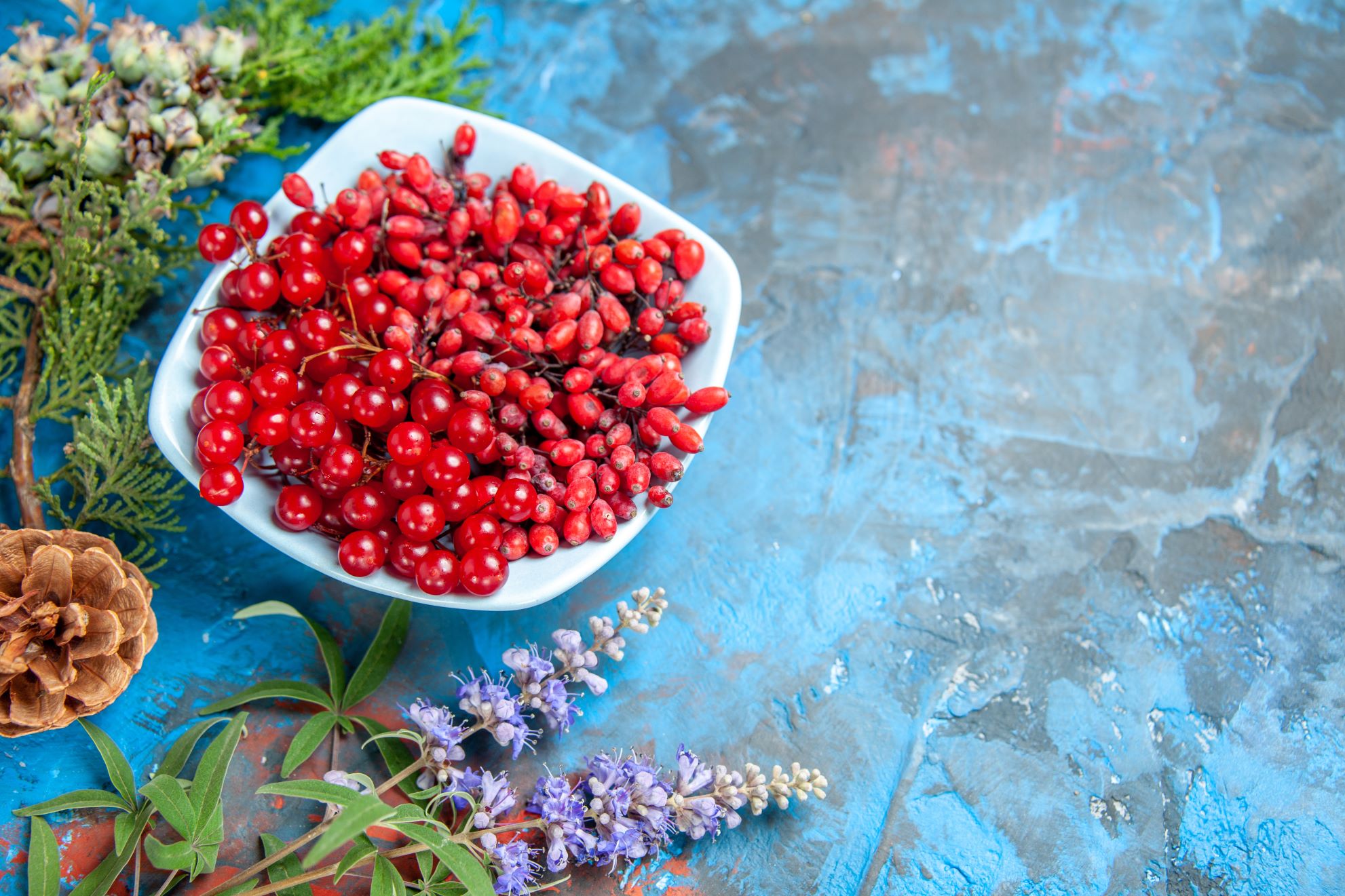
- by somaye
- food / useful article
- May 20, 2023
- Post Views: 1,308
- 0
Barberry, also known as berberis vulgaris, is a shrub that bears small, red berries. It has been used for centuries in traditional medicine due to its various health benefits. Here are some of the properties associated with barberry:
properties of barberry:
- Antioxidant properties: Barberry is rich in antioxidants, including vitamin C and berberine, which help protect the body against damage caused by free radicals. Antioxidants play a role in reducing oxidative stress and inflammation.
- Anti-inflammatory effects: Barberry contains berberine, a compound known for its anti-inflammatory properties. It may help reduce inflammation in the body and alleviate symptoms of inflammatory conditions such as arthritis.
- Digestive health: Barberry has been traditionally used to support digestive health. It may stimulate the secretion of digestive enzymes, improve appetite, and aid in the digestion of fats. Barberry extract is sometimes used to relieve symptoms of indigestion, heartburn, and upset stomach.
- Immune system support: Barberry is believed to have immune-enhancing properties. It may help boost the immune system and increase the body’s resistance to infections. Some studies suggest that barberry extracts may have antimicrobial effects against certain bacteria, fungi, and parasites.
- Cardiovascular benefits: Barberry may have positive effects on heart health. It has been shown to help lower blood pressure, reduce LDL cholesterol levels, and improve blood circulation. These effects may contribute to a lower risk of cardiovascular diseases.
- Liver support: Barberry has a long history of use in traditional medicine for liver disorders. It may help promote liver function, protect against liver damage, and support detoxification processes in the body.
- Anti-microbial effects: Barberry contains berberine, a compound that has shown antimicrobial properties. It may help inhibit the growth of certain bacteria, fungi, and parasites. It has been used traditionally to treat infections, including urinary tract infections, gastrointestinal infections, and respiratory tract infections.
- Antidiabetic potential: Some studies suggest that barberry may have beneficial effects for individuals with diabetes. It may help improve insulin sensitivity and regulate blood sugar levels. However, more research is needed to understand the full extent of its antidiabetic properties.
- Skin health: Barberry extracts are sometimes used topically in skincare products. The antioxidants present in barberry may help protect the skin from oxidative stress, reduce signs of aging, and promote a healthy complexion. It is believed to have antimicrobial effects that can benefit individuals with acne-prone skin.
- Eye health: Barberry contains compounds like Barberry and lutein, which are beneficial for eye health. Lutein is known to support eye function and protect against age-related macular degeneration (AMD), a common eye condition. Barberry consumption may contribute to maintaining healthy vision.
- Anticancer potential: Some studies suggest that certain compounds found in barberry, such as Barberries, may exhibit anticancer properties. They may help inhibit the growth and spread of cancer cells, although more research is needed to establish its effectiveness as a standalone treatment.
It’s important to remember that while barberry has been used traditionally for various health purposes, it should not replace conventional medical treatments. If you’re considering using barberry for any specific health condition, it’s advisable to consult with a healthcare professional for personalized advice and guidance.






